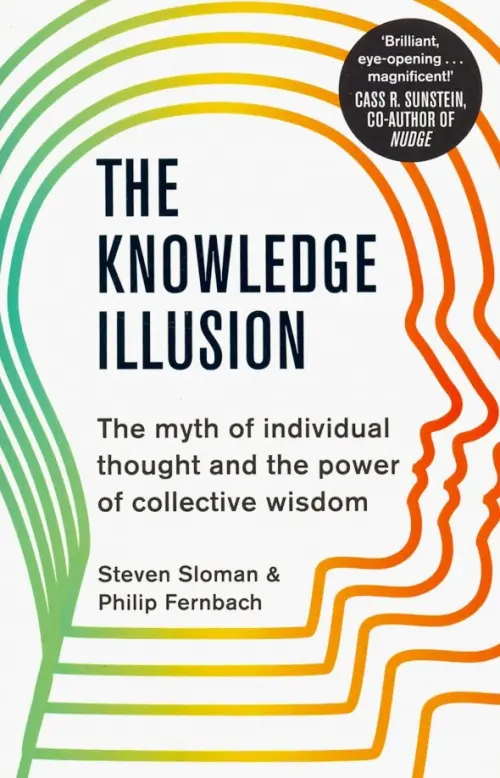
The Knowledge Illusion
Human reasoning is remarkably shallow in fact, our thinking and justifications just scratch the surface of the true complexity of the issues we deal with. The ability to think may still be the greatest wonder in the world (and beyond), but the way that individuals think is less than ideal. In The Knowledge Illusion, the authors show that people are a little like bees and society like a bee hive: our intelligence resides not in individual brains but in the collective mind. To function, individuals rely not only on knowledge that is stored within our skulls but also on knowledge stored elsewhere, be it in our bodies, in the environment, and, especially, in other people. Put together, human thought is incredibly impressive, but at its deepest level, it never belongs to any individual alone. And yet the mind supports the most sublime, incredible phenomenon of all: consciousness. How can any of this be possible with a mind that is so imperfect? This is one of the key challenges they will confront. The Knowledge Illusion will not only tie together established scientific facts, but their arguments will be made sensible by a consideration of what the mind is for. Understanding why the mind is as it is, and what it is for, will show why we need to consider it as extending beyond our skulls; why we should think about the mind as far more than an extension of the brain but as an emergence from multiple brains interacting. Simply put, individuals know relatively little, but the human hive that emerges when people work together knows a lot. The Knowledge Illusion offers us improved ways of approaching our most complex problems. It should make us more humble, opening our minds to other people's ideas and ways of thinking. It offers lessons about how to avoid things like financial meltdowns by recognizing the limits of our understanding. It can help improve our body politic and help us assess how much reliance should we have on experts vs. how much decision-making power should be given to individual voters. Appreciating that the mind is shared should also make us more realistic about history; instead of idolizing the great men and women of history, we should be idolizing the great societies that allowed great ideas and achievements to develop. Knowing that knowledge resides in systems of individuals also makes it harder to see catastrophe coming, because there may be no individual on the lookout, so understanding ourselves better allows us to create better safeguards. In short, there is real value in knowing that the mind is more than the brain.



 Каталог товаров broE.ru
Каталог товаров broE.ru